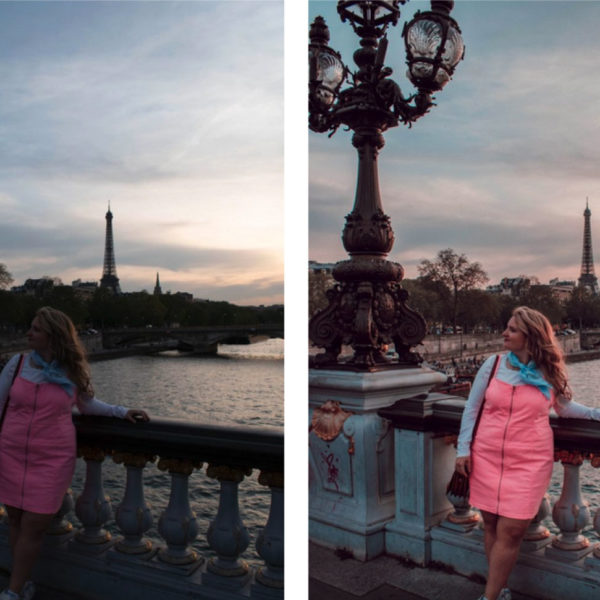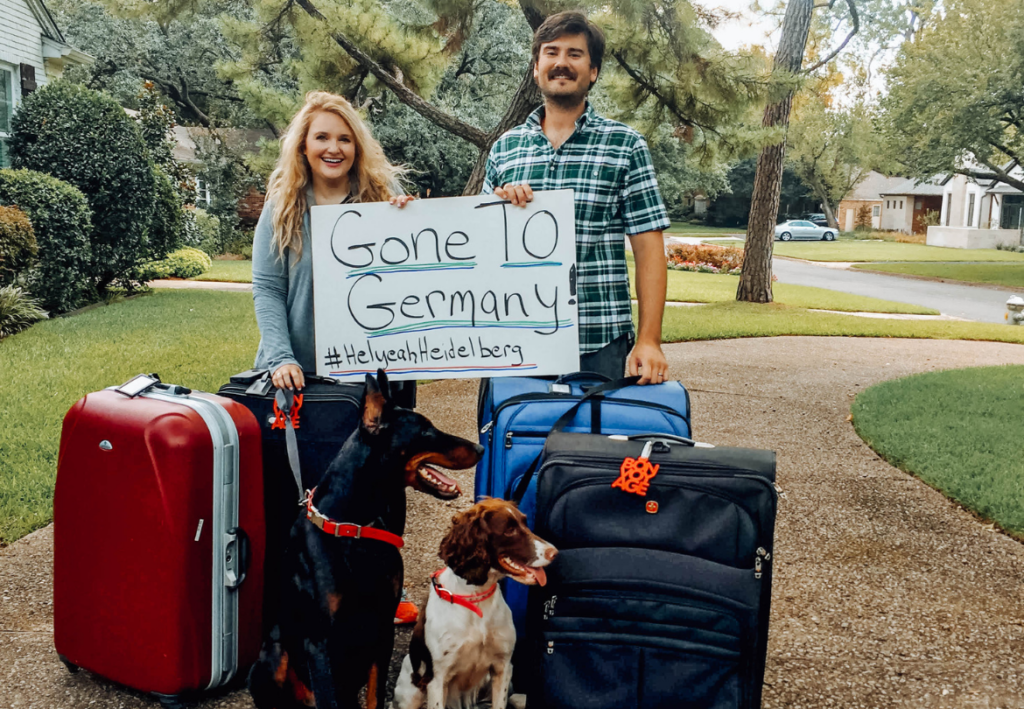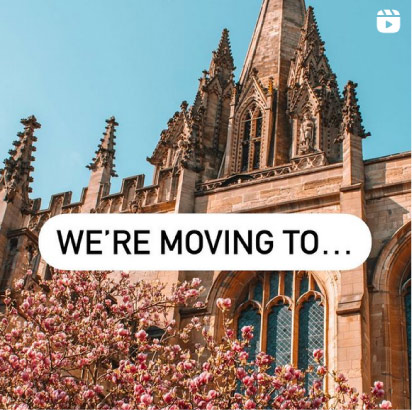When I started this blog, I mean really started it, I had just fallen 20 feet rock climbing. Unable to move, I spent my time writing. I wrote about a lot of the things that I had going on in my life, and of course, my recovery process with my broken ankle. I never dreamed that I'd be put in the same situation in Europe. I wanted to share what it's like to have surgery abroad because it is so different from America is so many ways. Some good, some not so.
First, a bit of backstory. Michael and I were in Austria having a swell time at a beautiful resort. On the last day we decided to go skiing. After a lot of snow and wet conditions, the sky opened up for a beautiful view of the mountains. As I was easing my way towards the bottom of the mountain, at the very end of the run, I over-corrected my turn and fell. It hurt, but I didn't think I did anything that damaging.
Wrong.
We headed straight to Austria's emergency room where I waited an extremely brief time and was inspected by a doctor who told me he was, “still in school.” After he told me my ACL was torn it was back home to Heidelberg, Germany to get an MRI.

Now, the way it works in Germany and many other places in Europe is that you must have a doctor's note, or prescription, to get said MRI. You can't just waltz in and ask for one. After calling various offices and being told that we'd have to wait anywhere from 2-6 weeks we started to lose hope. Luckily, we called one last place just walking distance from our home. Not only could they see me, they could see me that very day.
Michael purchased a wheelchair off our local Ebay (Ebay Kleinanzeigen) and wheeled me over to the office. The doctor did a quick ultrasound on my leg, a surprising procedure for a torn ACL, but the doctor assured us he is one of the top ultrasound readers in the country.
He believed it to be torn and sent me off straight away for the in-office MRI. By this point I was scared but also relieved to know my fate. After the 30-minute MRI the doctor confirmed his suspicions that the ACL was torn and that I'd need surgery.
Here was the truly remarkable part: after recommending one of the best orthopedic surgeons in Germany, he picked up the phone and made an appointment on my behalf. I'm not sure how long I would've waited if I made the appointment myself. My appointment was just a few days away in a smaller town an hour outside of Heidelberg called Pforzheim.
After my initial appointment with the surgeon who spoke perfect English, I waited a few days to have surgery. Fitted with a brand new knee brace and feeling relieved to have everything scheduled we had a birthday party for Michael and barbecued in the park.
As instructed, the day before surgery we called the hospital to see what time they'd want us in. We were told 3pm. We left the house just before 2pm to get to the hospital in time. After filling out some paperwork we sat down in a waiting room around 3:30 pm.
This is where things started to not go so well. After nearly an hour and a half of waiting, Michael went up to ask when we'd be seen. The woman at the front desk had minimal English (understandably so, we are in Germany) and told us it could be another 30 minutes to an hour.
Restless, and tired of sitting in a chair, they told me I could change into the hospital gown and lie back on a bed. I thought this was a wise choice, and thought surely I would be seen any minute.
Wrong.
In the end, I waited more than four hours to have surgery.
When they finally wheeled me back for surgery a nurse gave me an IV for the anesthesia. Right as she inserted the needle she exclaimed, “Oh no!” Horrified, I asked, “What? Is everything okay?”
Forgetting the language barrier, I realized she didn't have a clue what I said. So I picked up my hands and did a thumbs up shoulder shrug to indicate it as a question. Then she replied, “Oh well, bye bye!”
I went into surgery not having the slightest idea about anything that was going to happen next. Michael waited hours in limbo wondering if I was awake from the anesthesia.
When I woke up around 10pm after surgery I burst into tears. It wasn't the pain. It was the complete unknown, lack of care, and the language barrier that set me up for some very difficult situations. My lack of German was extremely apparent in the small town of Pforzheim. In Heidelberg I'm often spoiled because it's such a touristic town that most people speak English and it's not been a problem.
But in the hospital when you're scared and in pain, you want someone to speak clearly to help understand what's going on.
The next morning I spoke with my doctor who told me the procedure went well. I spent the day going to physical therapy, having very decent hospital food (spätzle with vegetables and curry soup, for example), and listening to the Heaven's Gate Podcast. And looking at my bright orange iodine leg.
But then, the pain started. I kept ringing the nurses for more and more pain medicine but the maximum I was given was 800 milligrams of Ibuprofen. My ACL was fixed by cutting a 3-inch incision in my knee and taking part of my hamstring to put it back together. So I was in excruciating pain.
After talking about my pain on my Instagram stories I was flooded with messages of the lack of pain medicine in Germany and Europe. America tends to over-prescribe, and Germany seems to do the opposite. The idea is that they don't want you to push yourself too far or rely too heavily on the medicine.
This is all well and good. But then they took the tubes out of my leg. A nurse roughly unwrapped my leg and told me to lie down and breathe, “this is probably going to hurt.” She wasn't kidding.
Imagine a dagger about 2 inches thick being inserted and then removed from your already tender wound. That's what it felt like. I howled aloud and tears welled up in my eyes. It was horrific.
After a very poorly wrapped bandage was applied I waited for a staff doctor to check on my leg so I could go home after 2 days in the hospital. She came, and told me to not yet wear my brace, my compression stocking, or move around much. Eventually, this would all be a different story from my doctor in Heidelberg.
I hobbled out of the hospital at a snail's pace. I was allowed to put just 5 kilograms (10 pounds) of weight on my bad leg and was so nervous to do too much. As I walked out, my leg kept painfully seizing up and almost doing a small kick without my control. It was freaking me out.
As soon as I got in the car I burst into tears. Michael let me wail all the way home. He truly is the best caretaker ever because this is affecting him just as much me. Living in Europe has already proven to be very inconvenient. But without my help, he's had to do all the grocery shopping, take the dogs out three times a day, feed them, and also take care of me. And I was in more pain than I'd ever been in before. We decided this just wasn't normal and we needed something stronger. When we called the surgeon's office we were told the only way to get additional medicine was to make the hour long journey back and be seen in person.
After extreme pain, and a doctor telling us he couldn't send us a prescription via fax or email, Michael was able to get some over-the-counter, stronger medicine.
Unfortunately, we weren't out of the woods yet. Monday I went to the doctor here in Heidelberg to have a look at my leg. He was astonished at how swollen I still was and asked if I'd been icing and elevating. After I told him I hadn't been he instructed me to do so. Then he wondered why I wasn't wearing the brace or the compression stocking. Again, I was told at the hospital not to.
If you're squeamish… scroll quickly past the next image.
At this point, I was so swollen my leg wasn't fitting in the brace and he also prescribed a “Cyro cuff” to help with swelling. He sent me off to get the new brace and cuff. To our dismay, they had neither. Not only did they not have these very common products, I needed an appointment to get fitted for the brace. Furthermore, it would take days to get them in. Remember, these are things I should have already been using.
Exhausted, frustrated, and to be honest, a bit fearful, we went home to make a taste of home: Mexican food.
Below, using my CPM (continuous passive motion) machine to get my leg back to normal:
So far, this experience has had its ups and downs. The doctors have been great. Insurance has been helpful. The hospital experience, however, was abysmal. Just trying to get the things I need, such as medicine and braces has been terrible. I'm hoping that the rest of the process can be on the good side. I'd much rather have less to report back.
What kind of insurance should I get in Europe?
This is a question I get so often and I've yet to address it because I wanted to make sure that I knew it was worth it. Despite all of the stress this process has been, our insurance has been great. We use expatriate insurance from Care Concept, a German company. It is extremely affordable and they have been very helpful in understanding the process.
One of my biggest struggles when I broke my ankle and leg was trying to figure out the insurance. This time, we are a bit more prepared.
I think one of the hardest parts of this situation for me is that I don't have my support system around. My family isn't here. My best friends aren't here. And it's basically Michael and I in this together.
I want to end this on a good note and say thank you to all of you for your kind thoughts throughout the past few weeks. I can't believe how caring and kind you guys are. It means so much to me that you would take the time out of your day to ask about how I'm doing.
Let me know if you're interested in posts like this. I never planned to write about having surgery overseas but then again we don't always plan for everything, right?!
















